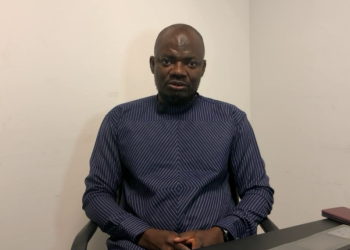Energy Policy Strategist, Dr Yussif Sulemana has advised the government to review its take or pay contracts in the energy sector.
Take or pay is a provision in a contract where the buyer is obliged to either take goods from a seller or pay a penalty amount to the seller for not taking them.
This system according to Dr Sulemana will cost the country so much since the country would definitely default on taking the power produced by these Independent Power Producers (IPPs).
“If you go into that agreement that is a take or pay and you put yourself in that agreement you are going to be boxed in. You may not even need the product and you have to pay for that. So if you put take or pay and take, especially at the situation we find ourselves, I struggle to find a justification why we should still push ourselves into take or pay agreement,” he said.
Speaking on the Pulse on JoyNews, he explained that the take-or-pay deal required some level of efficiency to run if the government did not want to pay penalties for energies not used.
“You, the off-taker unless you are phenomenally efficient to make sure that your power availability is there that you can always take advantage of the situation and run it continuously, which is not possible with respect to the inherent inefficiencies that we have with our infrastructure.
“We can’t have that so there is always going to be that capacity charges, so I still maintain that this take or pay contract, we have to look into it,” he said.
He continued that “we have to look into them, I mean the contract to make sure that if there is a possibility of actual re-negotiating to stand to be competitive, then we have to do that,” he said.
Again, Dr Sulemana expressed fear that the renegotiation might compound the issue.
However, he insists that when renegotiating is properly done it can give the country a competitive edge.
Meanwhile, he has advised the government to be efficient since it is the only way to ensure that the energy deals work to the country's advantage.
The country risks getting into another stage of load-shedding popularly known as "dumsor" if the government fails to reach debt payment agreement with IPPs.
Some stakeholders have blamed the current energy debts on some wrong negotiations by previous and current governments.
Notable amongst them is the former Chief Executive Officer of the Volta River Authority, Kweku Awotwe who said Ghana will be able to save more money if the country learns to negotiate better deals in the energy sector.
According to him, although investors are out to make profit and therefore will appreciate some guarantee from the government, the country could put in place “a competitive least-cost procurement plan” and go through with it.
Again the World Bank Country Director to Ghana, Pierre Frank Laporte, said Ghana’s energy sector debt is a major contributor to her debt woes.
Latest Stories
-
Let’s prioritize research quality in higher education institutions for industrial growth-Prof. Nathaniel Boso
2 hours -
Herman Suede is set to release ‘How Dare You’ on April 24
6 hours -
Heal KATH: Kuapa Kokoo, Association of Garages donate 120k to support project
6 hours -
KNUST signs MOU with Valco Trust Fund, Bekwai Municipal Hospital to build student hostel
6 hours -
The influence Ronaldo has on people, Cadman Yamoah will have same on the next generation – Coach Goodwin
7 hours -
Gender Advocate Emelia Naa Ayeley Aryee Wins prestigious Merck Foundation Awards
8 hours -
South Africa bursary scandal suspects granted bail
8 hours -
Ecobank successfully repays $500m Eurobond due April 18
8 hours -
Re: Doe Adjaho, Torgbui Samlafo IV, call for Unity among Paramountcies in Anlo
8 hours -
Extortion and kidnap – a deadly journey across Mexico into the US
8 hours -
Rihanna says fashion has helped her personal ‘rediscovery’ after having children
9 hours -
Development Bank Ghana targets GH¢1bn funding for commercial banks in 2024
9 hours -
Shatta Movement apologises to Ghana Society of the Physically Disabled after backlash
10 hours -
Sammy Gyamfi writes: Tema-Mpakadan Railway Project; A railway line to nowhere
10 hours -
Bright Simons: Is the World Bank saving or harming Ghana?
10 hours

